11 Things You Don't Know About the Chevrolet Corvette
It may be America's most famous sports car, but with seven decades of history behind it, there's a good chance you don't know everything about the Corvette.
Capital One
The Chevrolet Corvette has had an illustrious run for close to 70 years. Along the way, it’s become one of the most well-known vehicles in automotive history. While most of us think we know all about Chevy’s two-seat sports car, we’ve managed to unearth a list of the curious, fun, and fuel-injected facts that helped make the Corvette the American automotive icon it is.
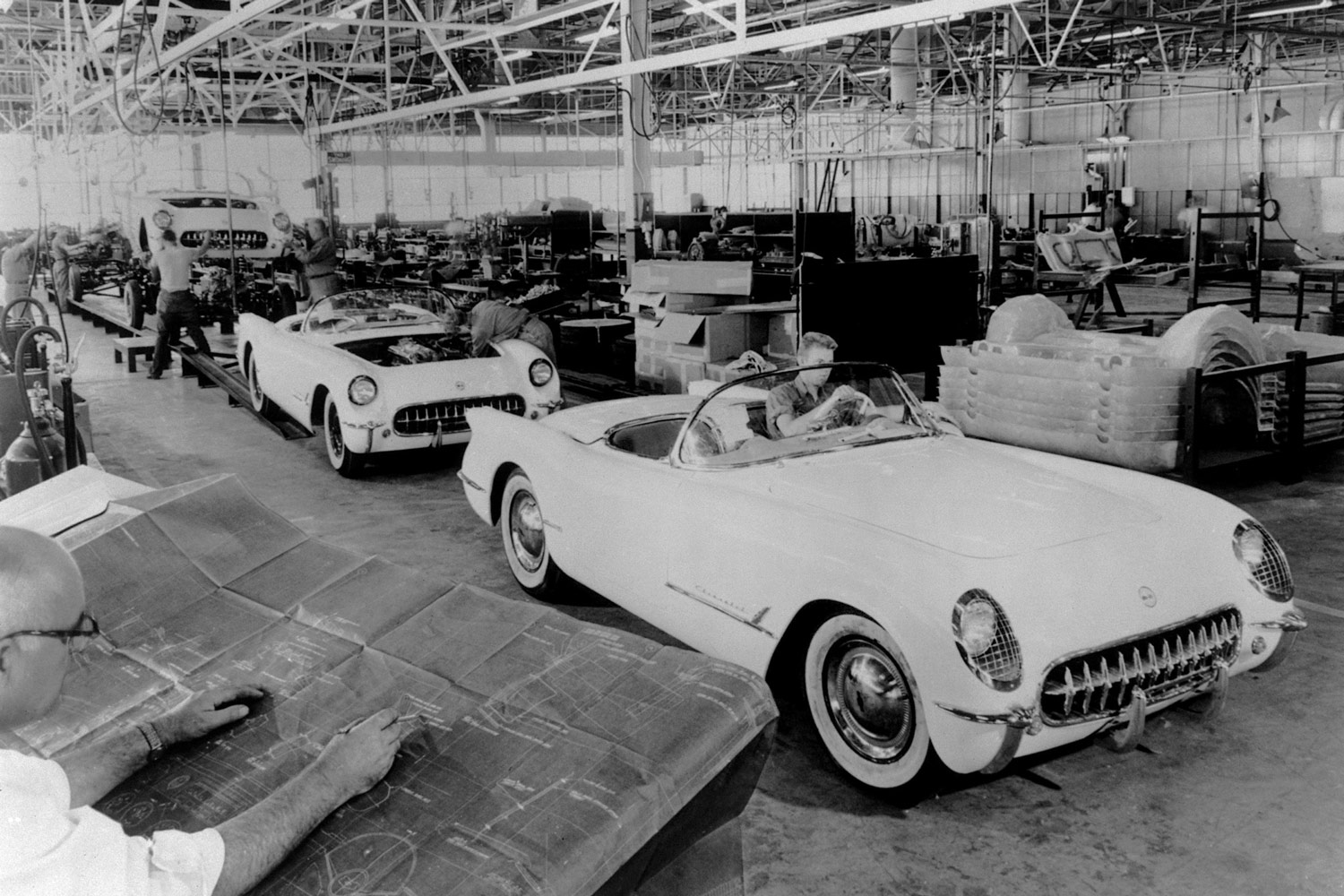 Chevrolet
Chevrolet
1. It Helped Launch a 1950s Design Trend
Along with a few other General Motors models in 1953, the original Corvette helped pioneer the wraparound windshield—in retrospect, not the most significant invention to roll off the assembly line. However, as one of the first mass-produced cars to use this design, the stylish two-door Corvette cleared the way for the wraparound to gain popularity during the 1950s. Persistent issues with distortion and less-than-ideal structural integrity put an end to this type of windshield after a few years.
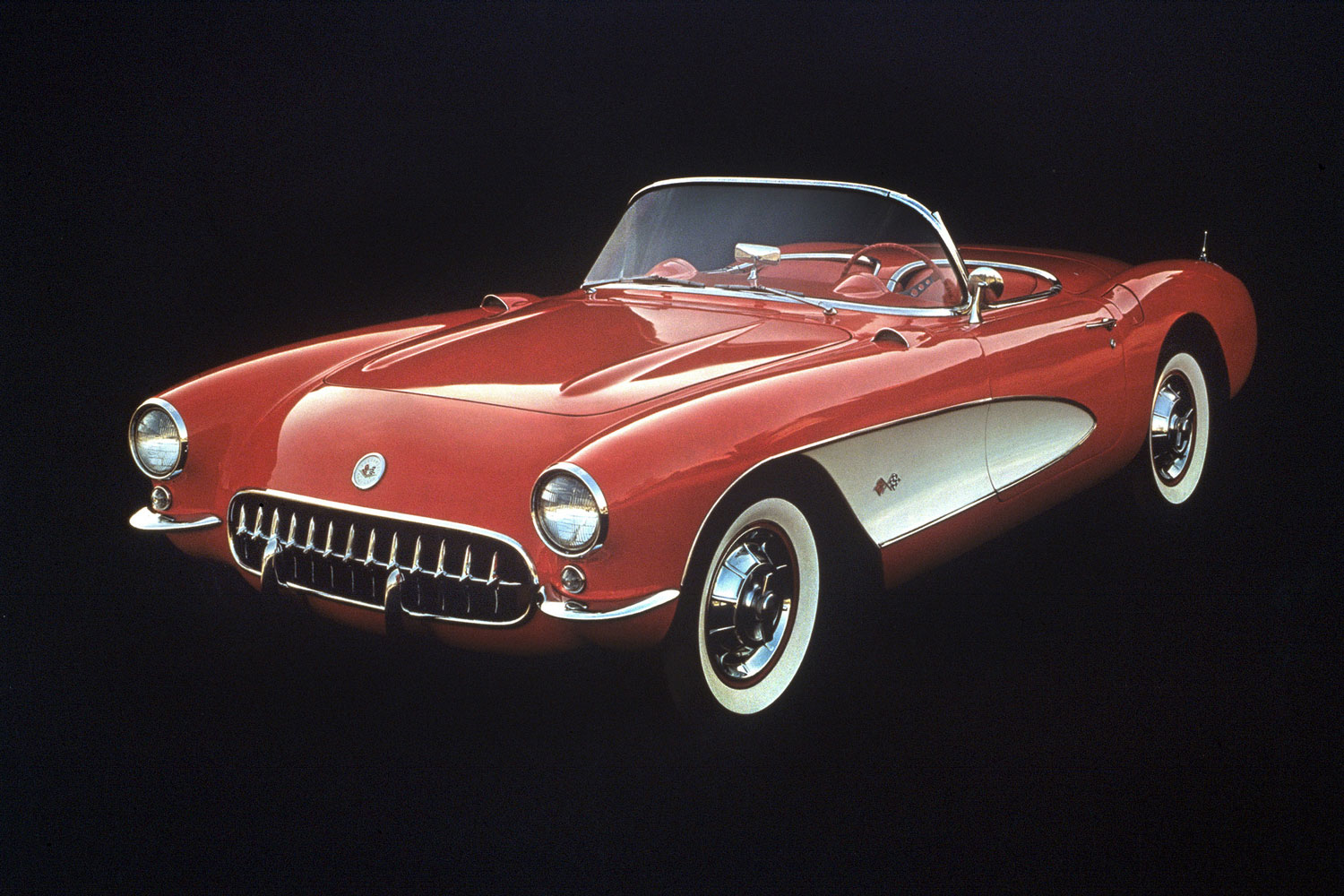 Chevrolet
Chevrolet
2. GM Had a Special Corvette Lease Deal for Astronauts in the 1960s
The relationship between NASA astronauts and the Chevrolet Corvette is a long one. According to reports, Alan Shepard was the first astronaut to show up to NASA training in a Corvette, his 1957 model. This happened in 1959, and three years later, GM rewarded Shepard for becoming the first American in space by giving him a new 1962 ’Vette. Jim Rathmann, the winner of the 1960 Indy 500 and a Chevrolet dealer in Melbourne, Florida, furthered the relationship. With approval from GM’s corporate brass, Rathmann arranged “special” lease terms for any NASA astronauts who wanted to drive a Corvette. In 1969, three members of the Apollo 12 crew ordered matching 427 Stingray coupes (nicknamed the “AstroVettes”) with a gold-on-black color scheme custom-designed by astronaut Alan Bean.
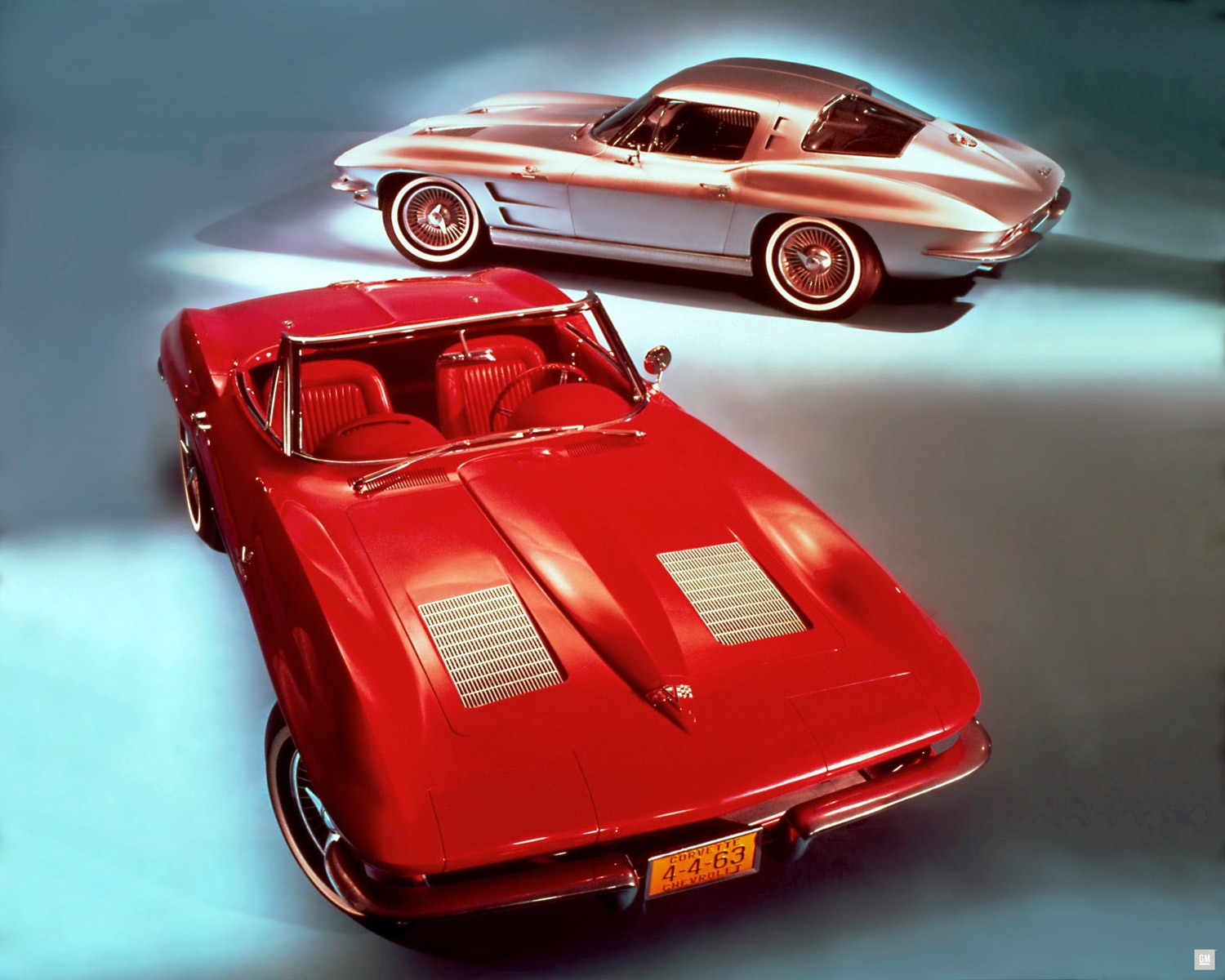 Chevrolet
Chevrolet
3. A Coupe Only Became Available 10 Years After the Corvette Debuted
The second-generation Corvette, which debuted in 1963, offered customers the choice of a coupe or convertible body style for the first time. This version was a complete redesign based on GM design chief Bill Mitchell’s 1959 Stingray race car concept. The coupe version of the production Corvette (wearing a “Sting Ray'' badge) featured the infamous “split-window” design, which triggered conflict between the styling and engineering teams. Almost half the Corvettes sold that first year were coupes, and concerns that the design hindered rearward visibility led to the split-window lasting for just 1 year before being eliminated.
4. Pop-Up Headlights Lasted From the Second Through Fifth Generations
That 1963 Corvette was also the first to feature hideaway headlights. This styling feature was incorporated into the second-generation model by GM design legends Larry Shinoda and Peter Brock. The pop-up headlights became a fixture on all Corvettes until the debut of the sixth-generation Corvette in 2005, which wore fixed headlights.
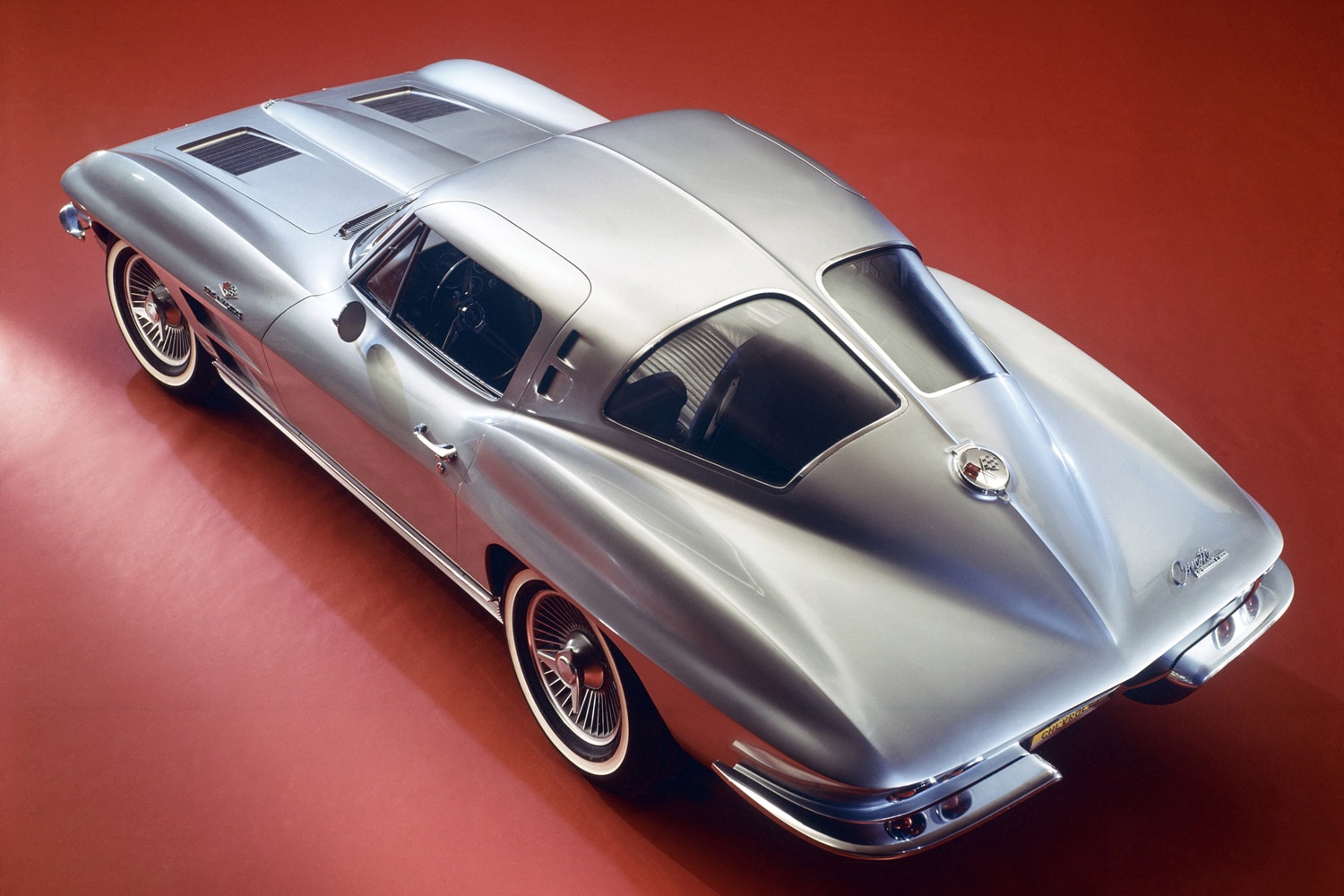 Chevrolet
Chevrolet
5. For Nearly 20 Years, the Corvette Had No Trunk
From 1963 until 1982, the Chevrolet Corvette had no trunk or rear hatch. The car featured a cargo area behind the seats—which was small on the convertible models—accessed from inside the vehicle only. The 1982 Corvette Collector’s Edition featured a hinged glass rear window that made it easier to toss luggage into the cargo area, and this design feature remained in place for more than 15 years. In 1998, the Corvette convertible featured a separate trunk with outside access—the first trunk on a ’Vette since the 1962 models.
6. The 1983 Chevrolet Corvette Is the Rarest of Them All
Unicorn alert! There’s only one 1983 Chevrolet Corvette in existence. How did this happen? Production of the 1983 model was delayed due to emissions compliance and factory retooling efforts, so GM elected to introduce the fourth-generation ’Vette as a 1984 model instead. Before GM made this call, brochures for the 1983 model were already published. Chevy even built 43 pre-production cars, of which all but one was destroyed. You can see the sole 1983 Corvette on display at the National Corvette Museum in Bowling Green, Kentucky.
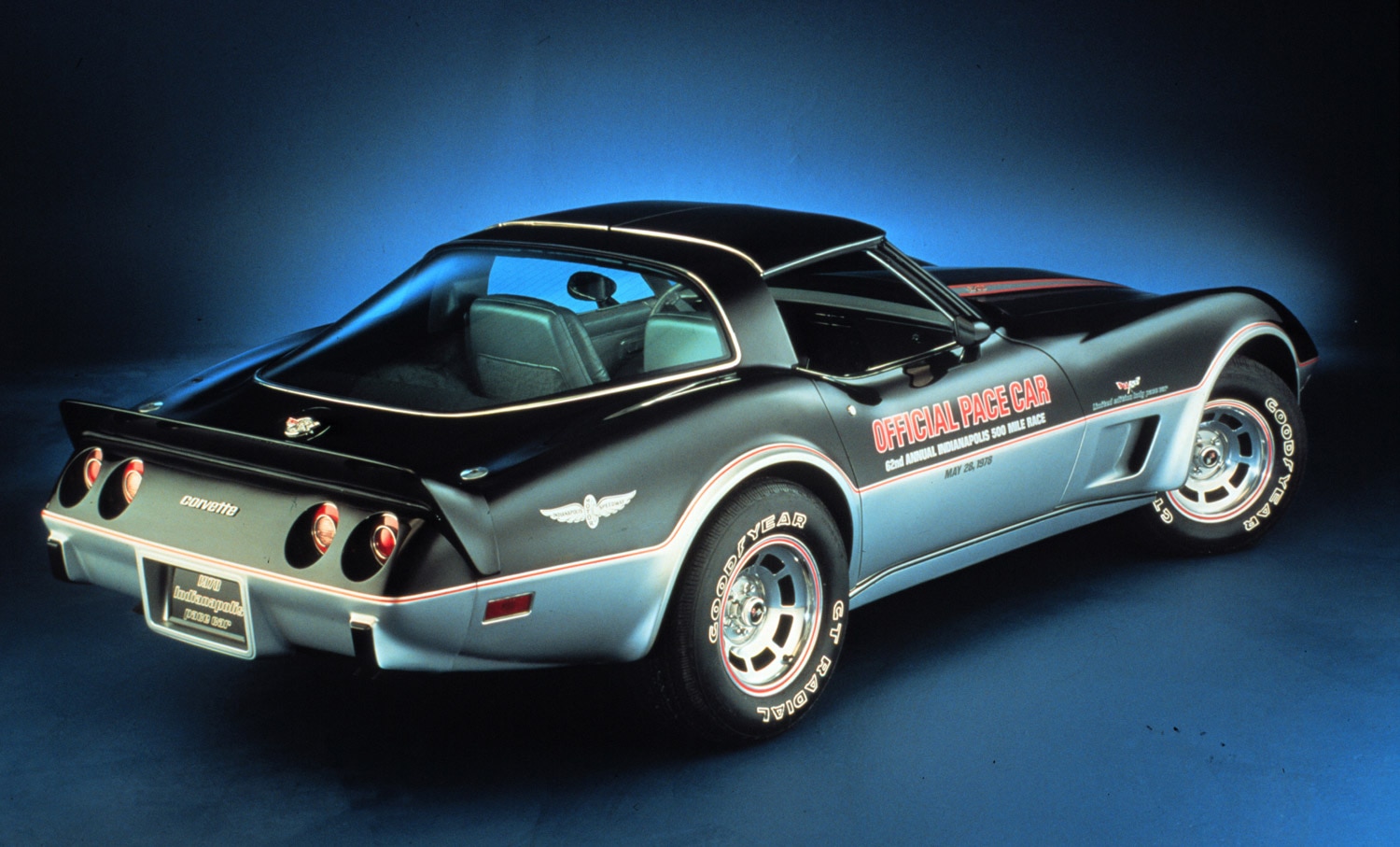 Chevrolet
Chevrolet
7. The Corvette Is the Most Reliable Pacemaker
The Chevrolet Corvette has been the pace car for the world-famous Indianapolis 500 more than any other car in history—an astounding 18 times. The first time the ’Vette hit the high banks was in 1978, which marked the inaugural model’s 25th anniversary. The Chevy sports car’s most recent appearance was during the 2021 race. Over the years, several production Indy 500 pace car special editions have been sold to the public.
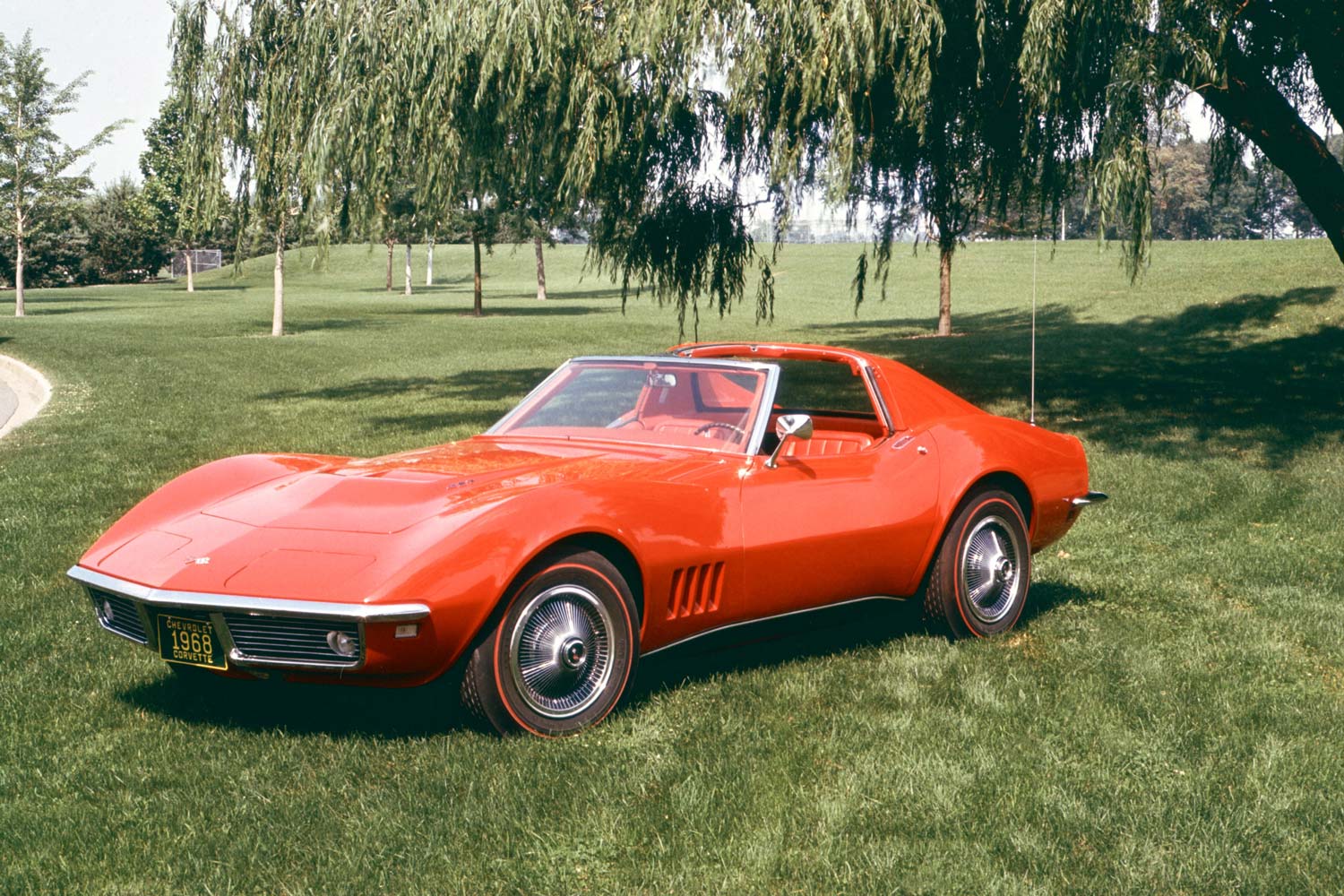 Chevrolet
Chevrolet
8. Since 1968, the Coupe Has Delivered an Open-Air Driving Experience
With the threat of federal safety rules banning convertibles, every 1968 to 1982, third-generation Corvette coupe came equipped with T-tops to appeal to open-air-driving fans. Over the first decade of production, the removable roof panels were made of fiberglass and were painted body color. In 1978, T-top panels made of tinted glass were offered as an option. By 1986, the convertible Corvette was back, and celebrated as one of the Indianapolis 500 pace cars.
9. A Sub-3-Second Corvette Is Nothing New
Chevrolet claims the 2015 Corvette Z06 can hit 60 mph in 2.95 seconds, and the recently announced 2023 Corvette Z06 has an advertised zero-to-60-mph time of 2.6 seconds. But GM knew how to build a sub-3-second Corvette way back in 1969. That’s when engineers showed off a prototype with a 7.4-liter, LT-2 V8 that was estimated to produce 625 horsepower.
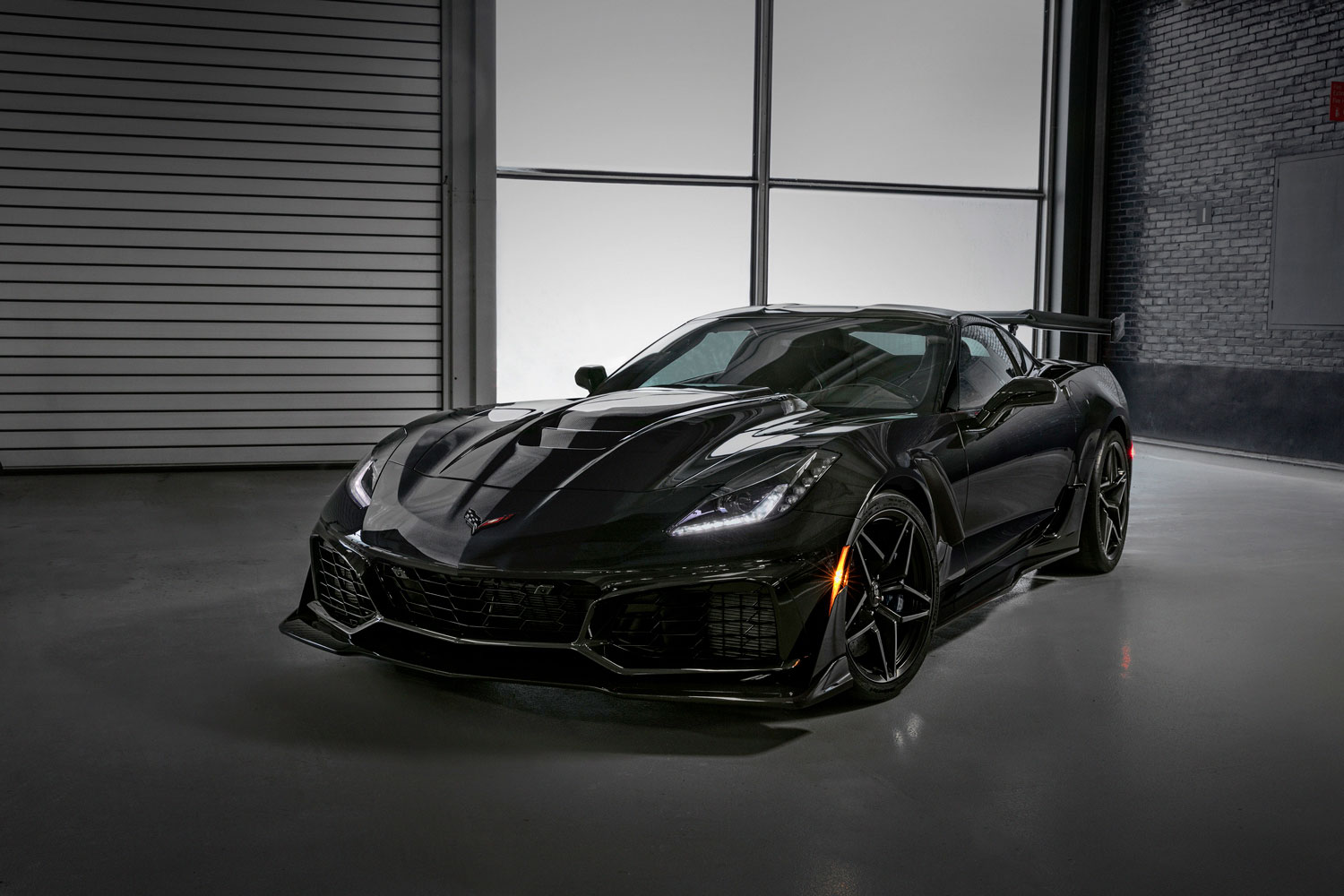 Chevrolet
Chevrolet
10. The Most Powerful Modern Corvettes Cost More Than $100,000
The most expensive production Corvette ever was the 2019 ZR1. Equipped with a supercharged, 6.2-liter V8, this version generated a stunning 755 horsepower, making it the most powerful production ’Vette ever. The ZR1 had a base price starting at $121,995 for the hardtop and $4,000 more for the convertible. Check off all the options on the menu, and a loaded ZR1 could push toward $150,000.
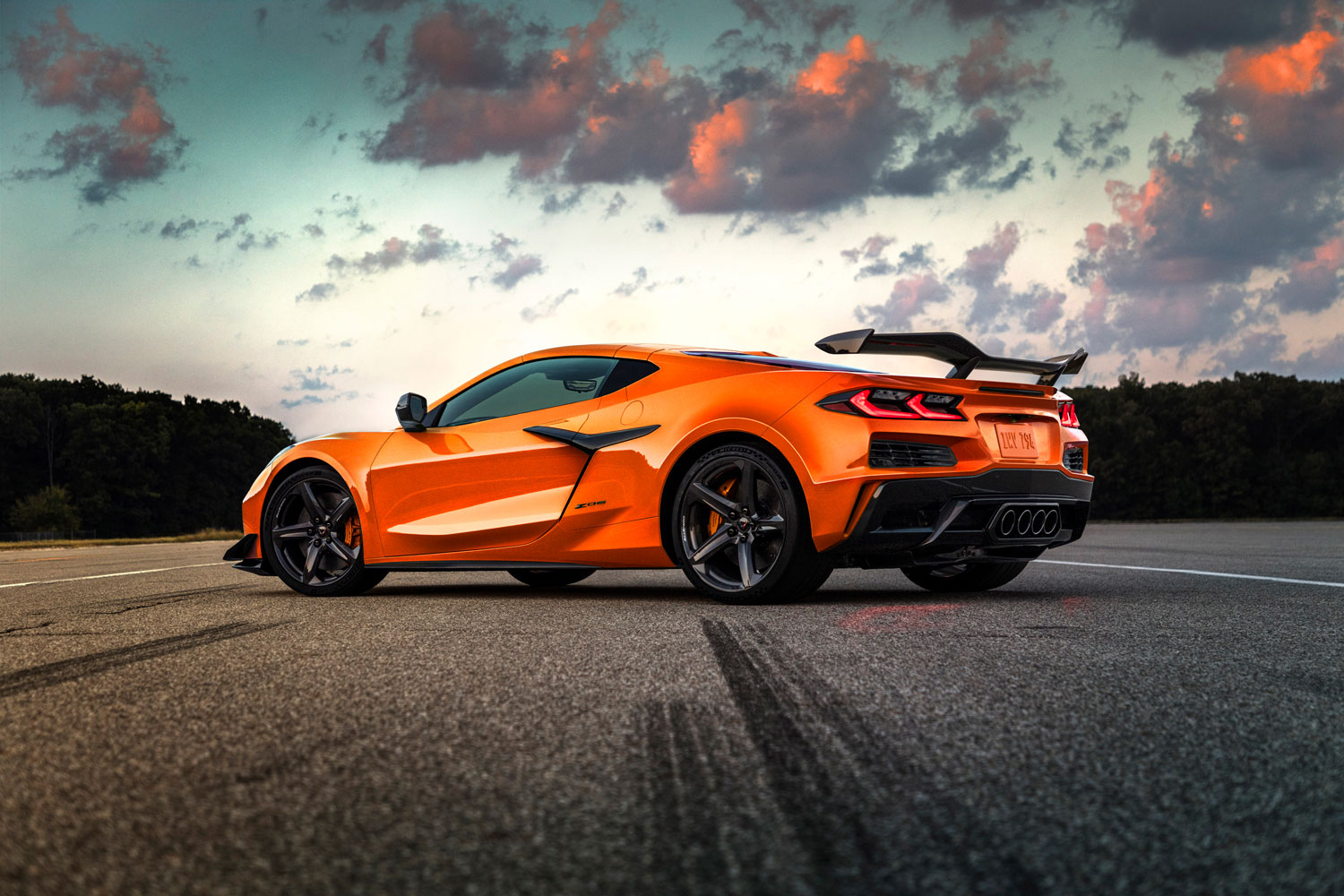 Chevrolet
Chevrolet
11. The Newest Model Is Unlike All the Versions That Came Before It
Since the first model rolled off the assembly line for the 1953 model year, all generations of Chevrolet Corvette have featured a front-engine, rear-wheel-drive configuration. That is until the debut of the current eighth-generation model. This version, introduced for the 2020 model year, is the first production mid-engine Corvette. It’s also the first Corvette since the 1980s to come without a manual transmission option. Instead, this ’Vette runs up the gears via an eight-speed, dual-clutch automatic.
Written by humans.
Edited by humans.
 Mark Hacking
Mark HackingMark Hacking is an award-winning writer with more than 20 years experience covering the automotive scene for some of the world's most popular publications. Mark holds an FIA International Race license and has his sights set on competing in the Rolex 24 at Daytona in the future. He was the first automotive journalist to race in the Ferrari Challenge series (in 2013) and the Jaguar I-PACE eTrophy series (in 2019).
Related articles
View more related articles